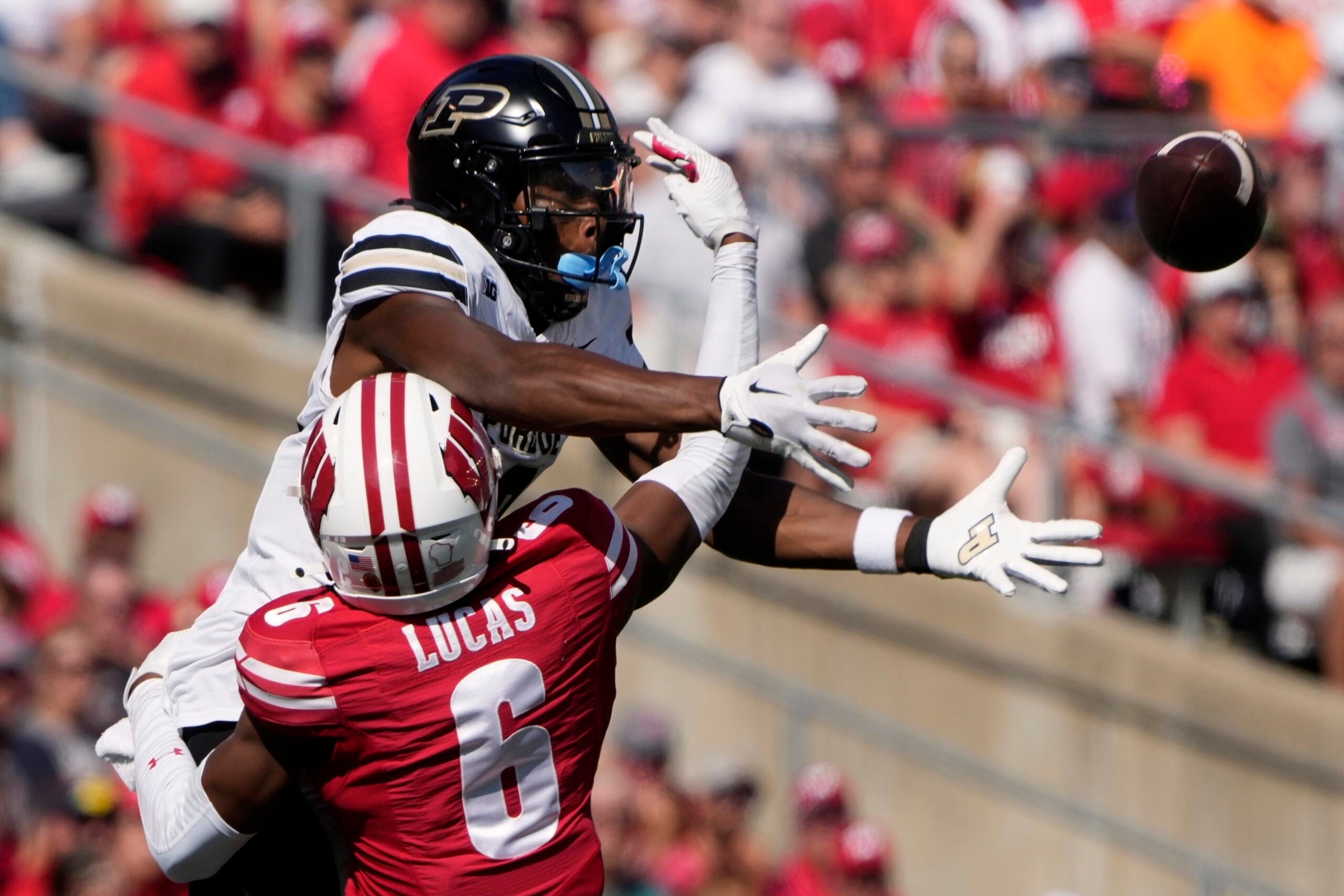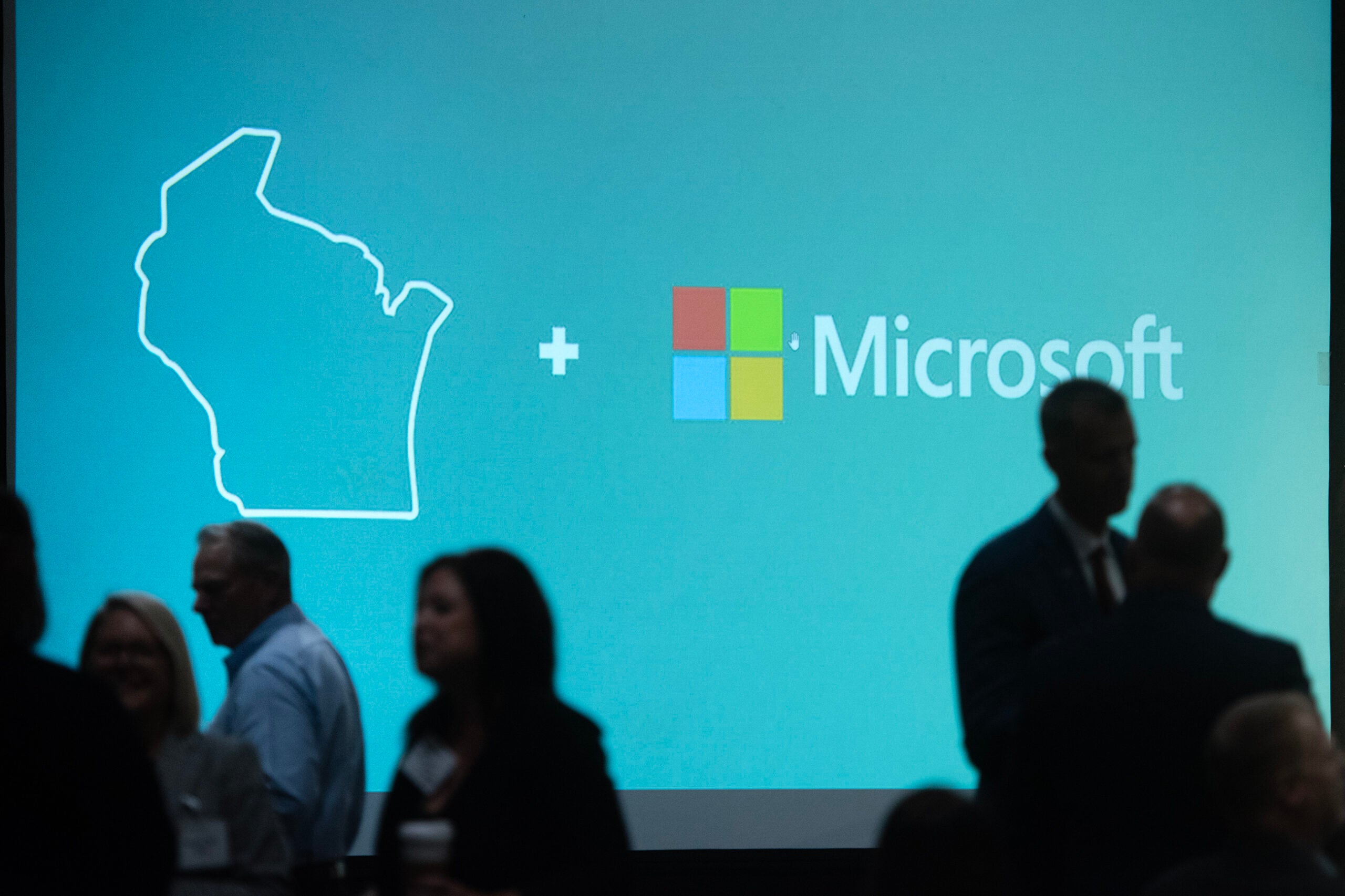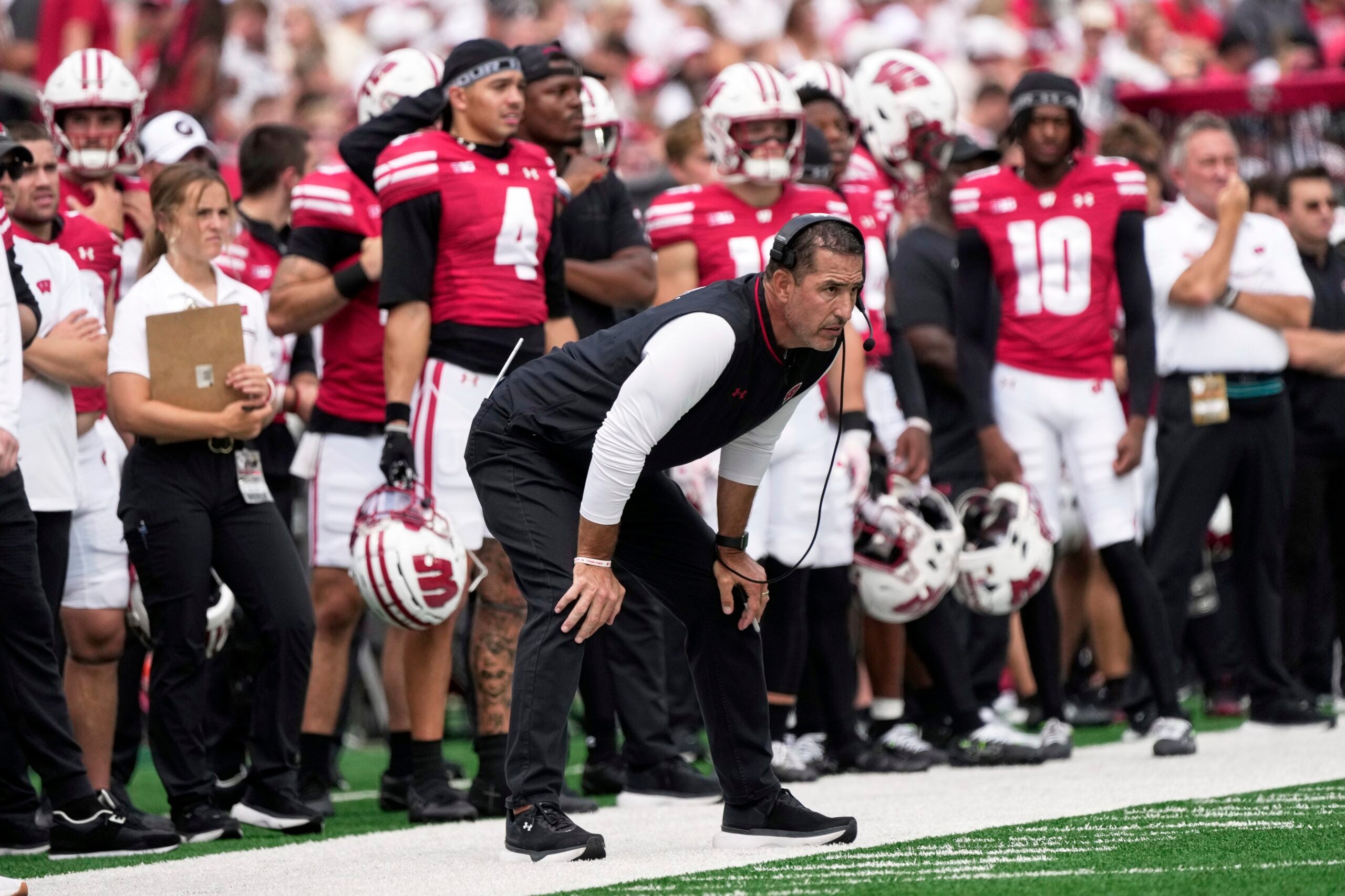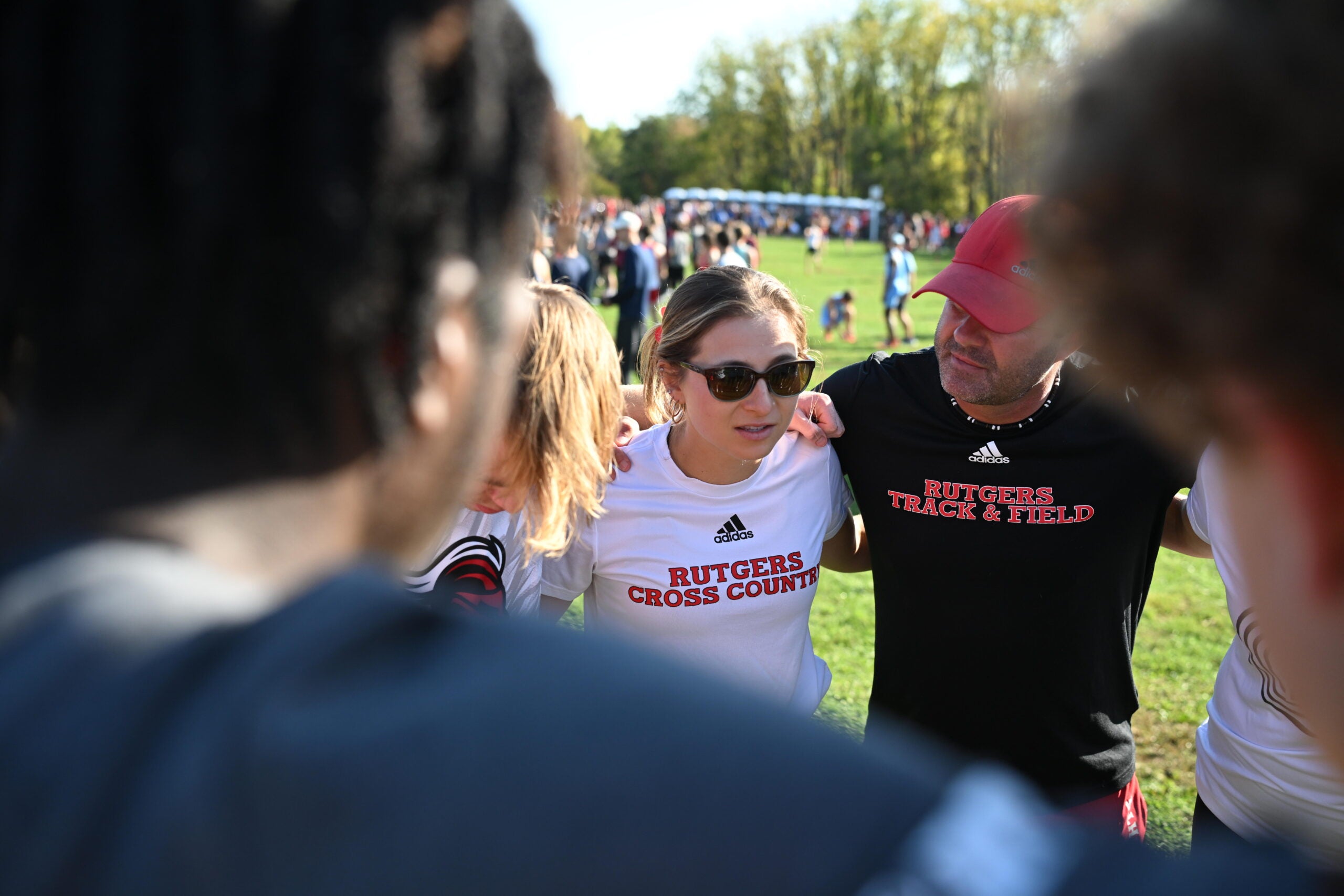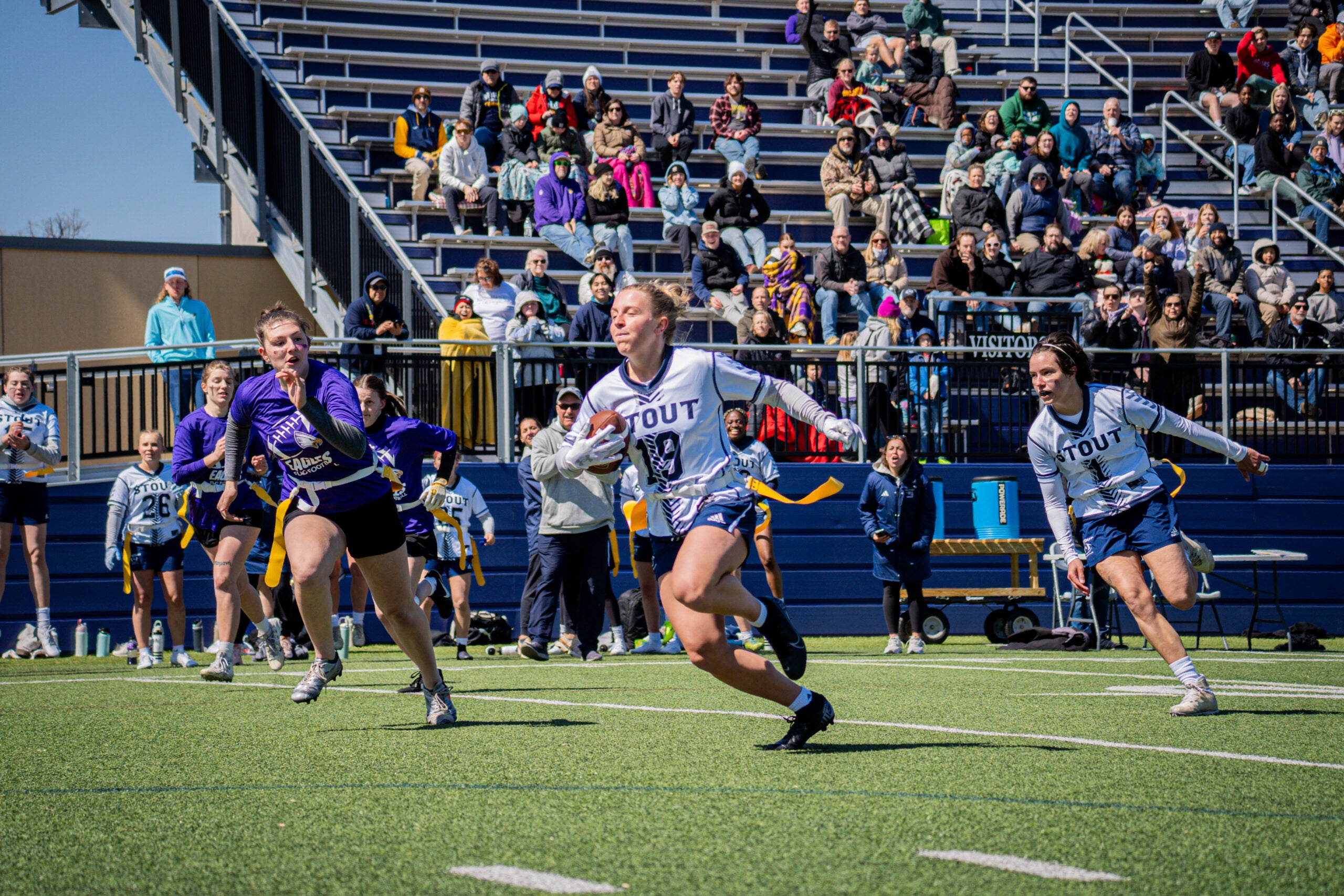A former Wisconsin Badgers football player’s decision to leave the program and play for another school could impact the future of all college athletes getting paid.
After this past season, freshman defensive back Xavier Lucas hoped to use the transfer portal to leave the University of Wisconsin-Madison. But because of a revenue sharing agreement with the player, the Badgers refused to enter him into the system.
Lucas’ workaround was to withdraw from classes in Madison and enroll as a student at the University of Miami, where he plans to play on its football team instead.
News with a little more humanity
WPR’s “Wisconsin Today” newsletter keeps you connected to the state you love without feeling overwhelmed. No paywall. No agenda. No corporate filter.
His attorney said the revenue sharing agreement is unenforceable, as it is dependent on an upcoming legal settlement in an antitrust lawsuit the U.S. House of Representatives brought against the NCAA.
Wisconsin said in a statement that the agreement should be upheld and the school “will evaluate all options going forward to determine the appropriate course of action.”
So far, no formal legal action has been taken by either side, and Lucas is moving forward with plans to play for Miami next season.
Anticipation of the settlement approval in April is leading the four major athletic conferences, which includes Wisconsin as part of the Big Ten, to propose a new entity independent from the NCAA to oversee and enforce revenue sharing contracts.
Marquette sports law professor Matt Mitten said these agreements are separate from the existing name, image and likeness deals that college athletes can sign to receive compensation while in school.
He joined WPR’s “Wisconsin Today” to explain the legal dynamics involved and how these changes could affect college sports for fans across the state.
The following was edited for clarity and brevity.
Kate Archer Kent: How does the athlete compensation system work now for college players and athletic programs like Wisconsin?
Matt Mitten: The way that it’s supposed to work is that all intercollegiate athletes can enter into name, image and likeness deals with third parties, including collectives of alumni boosters and donors. They can earn fair-market value pay for publicity that’s supposed to be based on the athlete’s value to the advertiser as someone who would be promoting their products.
What we have in reality is a pay-for-play system where collectives are being used to attract outstanding players to particular universities based on their athletic ability, rather than their fair market value for publicity.
KAK: How unique is Xavier Lucas’ situation at Wisconsin? What implications could this case have?
MM: My understanding is he entered into a two-year revenue sharing deal with UW-Madison and for whatever reason, he decided that he wanted to play football at the University of Miami instead. His deal is contingent upon the proposed House antitrust litigation settlement. But it’s pretty commonplace that universities nationwide are entering into these revenue sharing deals with athletes in various sports.
What Mr. Lucas has done raises two issues: One is the enforceability of athletes’ revenue sharing deals with their respective universities. And two, what’s going to be the particular time frame when athletes can say, “I’m going to choose to leave my university and go somewhere else?”
KAK: What will these changes to athlete compensation and revenue sharing mean for the fan experience in Wisconsin?
MM: Historically, the vast majority of athletes have played at one university, but now we have transfer rules that permit athletes to transfer and potentially use their four years of eligibility at four different schools. This musical chairs is going to affect fan interest at some point because you get used to seeing a promising young player and look forward to him next year, and then he’s no longer here. One of the purposes of these revenue sharing agreements is that a lot of them are multi-years. It would be designed to keep a player like Xavier Lucas at the University of Wisconsin.
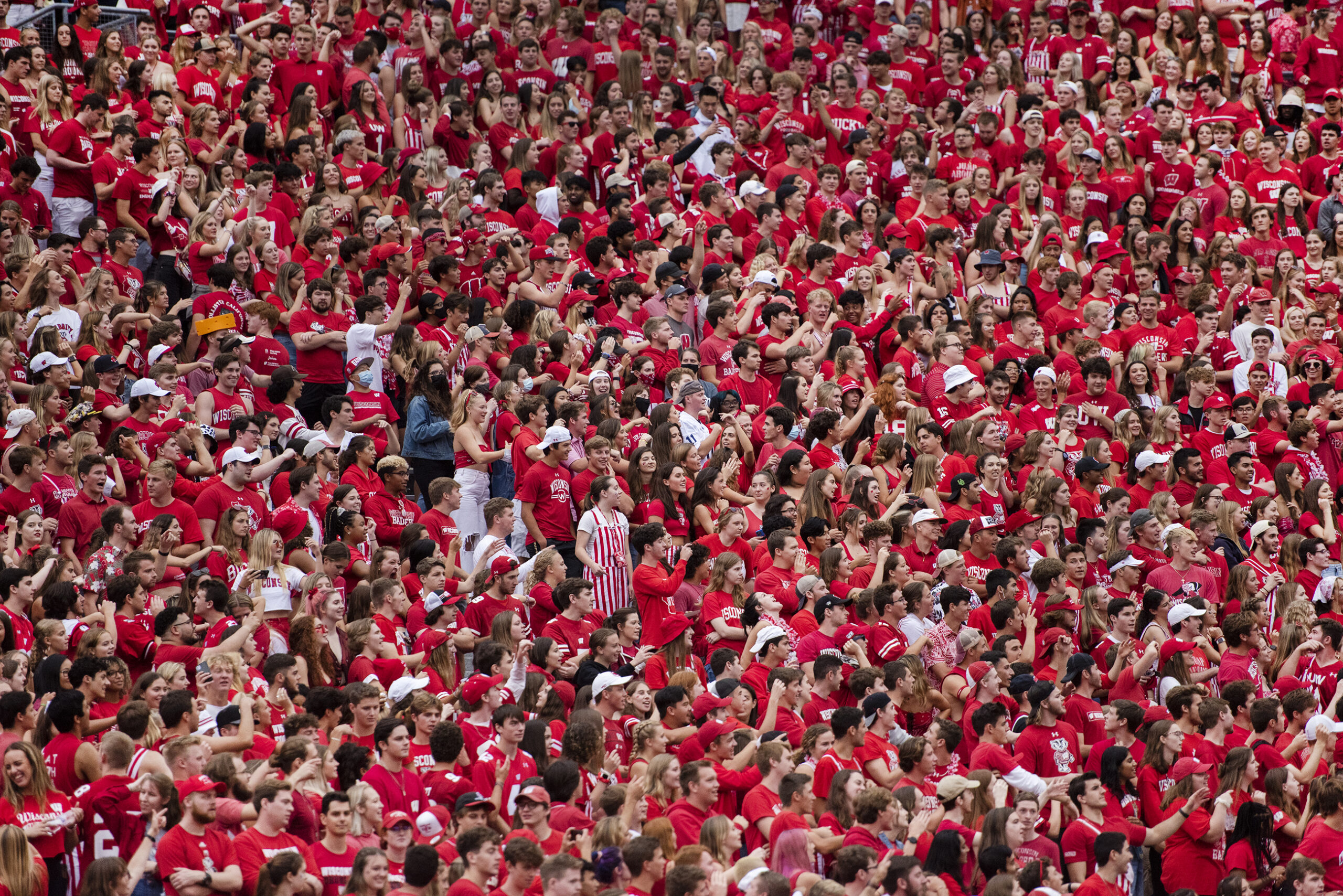
KAK: The Power 4 conferences of schools are proposing to form a new entity to oversee and enforce athlete compensation rules under the antitrust settlement. Could a body like that intervene in a case like Xavier Lucas?
MM: Well, potentially it would. As I understand, what is proposed is they would agree on rules like this, like when athletes are eligible to go into a transfer portal and agree among themselves to respect athletic scholarship agreements, including revenue sharing components. And it’s also proposed that there would be a mechanism for policing the proposed salary cap.
Athletes would still be free to enter into fair market value NIL rights deals with third parties and those would be scrutinized to see whether they are actually pay-for-publicity deals or just a type of disguised pay-for-play. And then there would be a system to resolve disputes.
KAK: The Trump administration rescinded guidance from the Biden administration that name, image and likeness deals fall under Title IX and require equitable distribution between male and female athletes. How well were schools balancing NIL compensation between male and female sports up to this point?
MM: The House settlement agreement really doesn’t establish any parameters or requirements on how schools spend their revenue sharing with athletes, other than don’t exceed the salary cap. It’d be up to each school to determine how it’s going to distribute that projected $20.5 million to its intercollegiate athletes.
What Title IX of federal law requires is that if any part of a college or university receives federal funds, then all of its operations, including the athletic department, are covered by Title IX. Historically, what that has meant is schools must provide athletic participation opportunities proportionally equal for both male and female athletes, as well as provide equal treatment and benefits.
The Biden administration’s approach was, there’s not a carve-out or an exception that you can take out for revenue generating sports like football and men’s basketball. And that view is consistent with Title IX’s legislative history. But recently, the Trump administration withdrew that and is basically taking the position that revenue sharing payments would not constitute financial aid assistance or other benefits — where Title IX would require equitable distribution between female and male athletes.
Wisconsin Public Radio, © Copyright 2025, Board of Regents of the University of Wisconsin System and Wisconsin Educational Communications Board.

